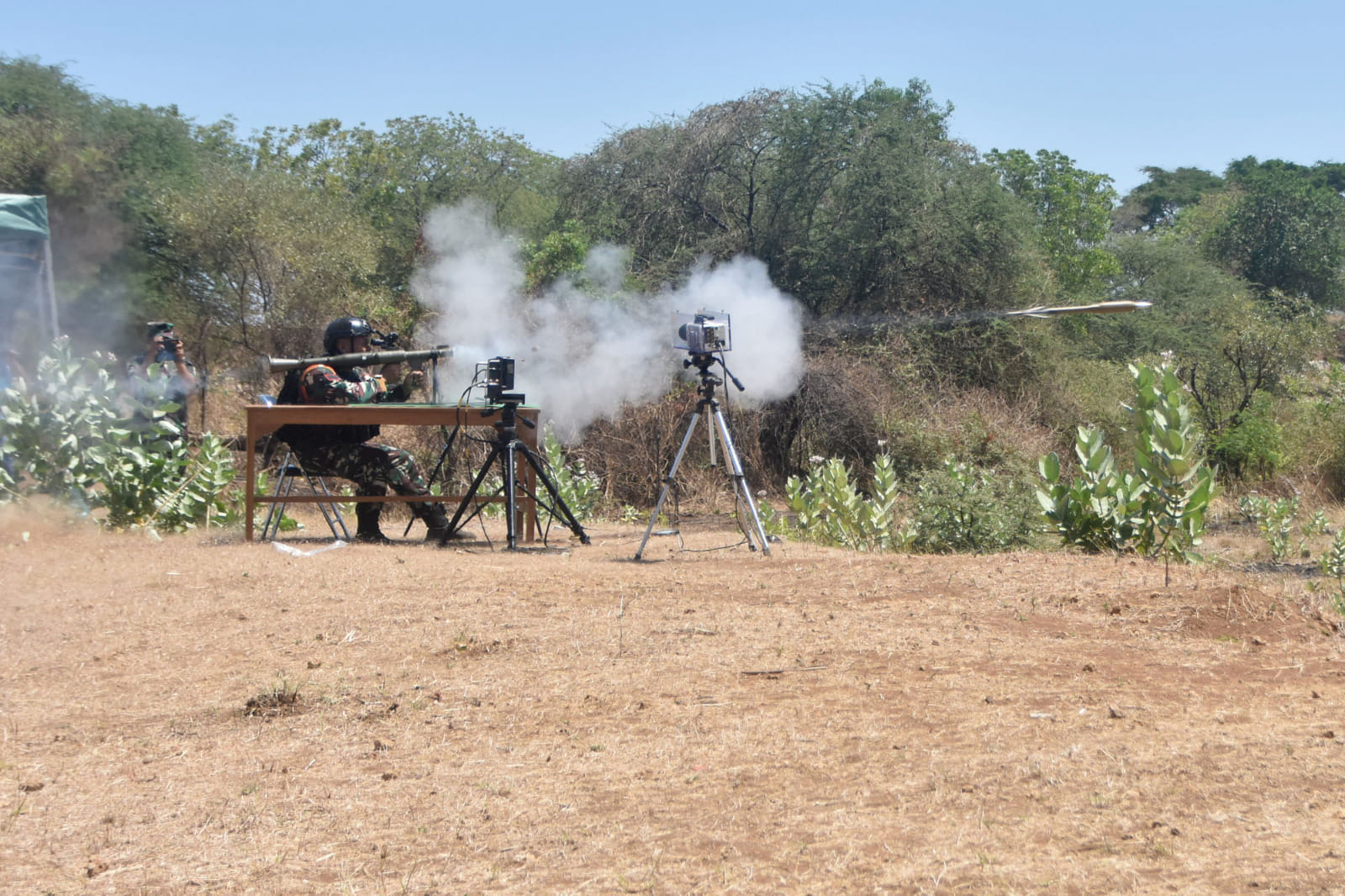Brigadier General (Mar) Suherlan, the Deputy Commander of the Indonesian Marine Corps (Korps Marinir), accompanied by Colonel Marine Dede Harsana Commander of the Marine Corps Training Command, supervised a functionality test for the newly procured Anti-Tank Grenade Launchers (ATGL) at the Puslatpurmar 3 Grati Firing Range in Pasuruan on Tuesday, September 3, 2024. The event was also attended by various high-ranking officers, including the Deputy Commander of 2nd Marine Force Divison (Pasmar 2), representatives from PT Artha Baruna Indonesia, and other key personnel from related departments. During the event, Colonel Marine Dede Harsana along with other officials, provided technical guidance and ensured the smooth execution of the function test for the ATGL as part of the contract with the Indonesian Navy’s Technical and Electrical Service Department (Dissenlekal). The functionality test at Pasuruan marks a significant step in ensuring the effectiveness and readiness of the Indonesian Marine Corps’ anti-tank capabilities, further solidifying its combat and tactical options against various threats.

The ATGL series, manufactured by Bulgarian arms producer Arsenal, including variants such as ATGL-L, ATGL-L1, ATGL-L2, ATGL-L3, ATGL-L4, and ATGL-L5, are highly reliable recoilless weapons designed for engaging enemy tanks, self-propelled artillery units, and other armored vehicles. These versatile RPG systems can also be used against enemy personnel in both open and fortified positions. They are lightweight, mobile, and reloadable, capable of firing various types of munitions, making them among the most adaptable RPG systems in active use today worldwide. The Indonesia Marine Corps, is no stranger to RPGs like the ATGL-L. The ATGL-L series, particularly the ATGL-L4 variant, is also equipped with targeting sights that enable indirect fire roles, effectively increasing its range and allowing it to fulfill roles similar to the 60mm mortar. Furthermore, this rocket-propelled grenade system has demonstrated effective anti-tank capabilities.

The ATGL-L2 is a highly reliable recoilless weapon, designed for the effective destruction of tanks, self-propelled artillery units, and other armored vehicles, as well as enemy personnel in open fields or armored shelters. Its effective range varies based on the type of round used. The ATGL-L2 weighs 6.98 kg (including the sighting device) and measures 950 mm in overall length. It features a bipod with a width of 125 mm when assembled, and has a fire rate of 4 to 6 rounds per minute. The weapon’s lifespan can be extended by an additional 250 rounds with thorough repairs. The ATGL-L2 is a 40mm caliber weapon equipped with an SGL-7A optical sight and an elevating mechanism. It comes complete with a set of spare parts, tools, and accessories, including various bags and a sling for easy transportation. The weapon is available in a wooden case, with a total weight of 100 kg and dimensions of 1240x650x440 mm.

The ATGL-L has been in use since the military operations against the Free Aceh Movement (GAM) in Nanggroe Aceh Darussalam (NAD) in early 2003. Recently, the Indonesian Marine Corps has received an additional arsenal of the ATGL-L2 variant. The presence of the ATGL-L in the Marine Corps’ inventory is gradually replacing the 60mm LR commando mortar, given their similar effective firing ranges. Moreover, the ATGL-L is lighter, more mobile, and offers easier correction for direct fire support. While the Indonesian Marine Corps first deployed the ATGL-L during military operations in NAD in 2003-2004, the Philippine Army’s elite Scout Ranger unit also used the ATGL-L during the armed conflict in Marawi in 2017. The Philippine Army reportedly utilized the ATGL-L2 variant, capable of firing High Explosive Anti-Tank (HEAT) rounds, high-explosive anti-personnel fragmentation rounds, and thermobaric rounds.












